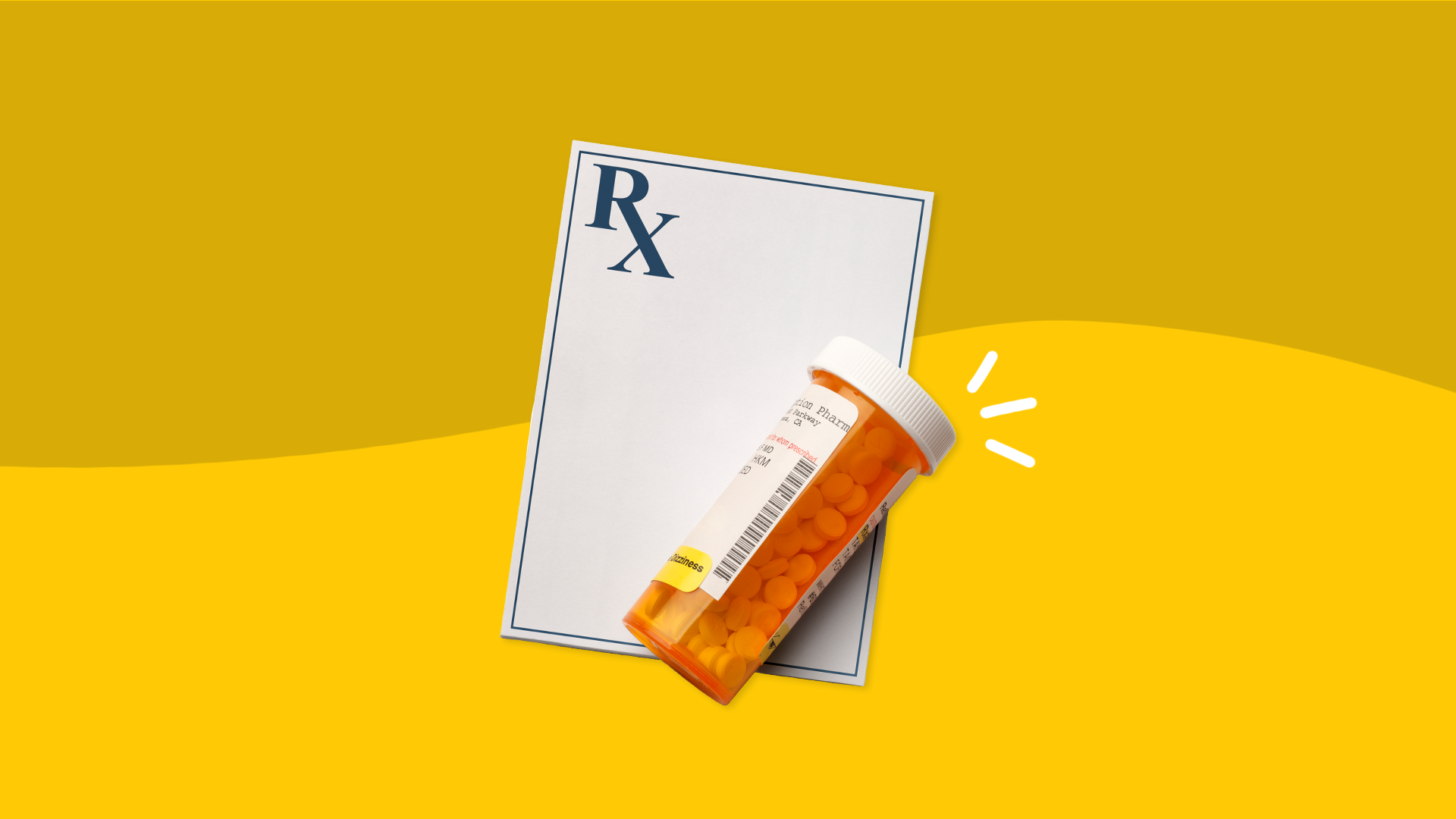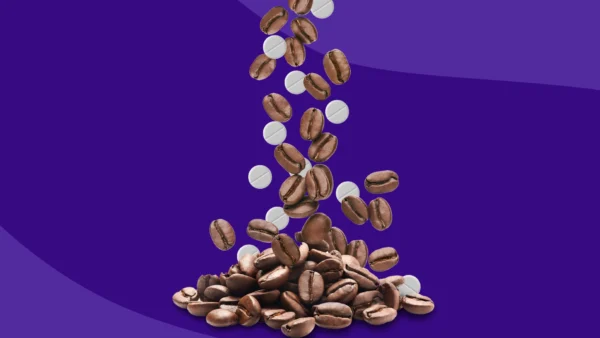Carvedilol side effects | Serious side effects | How long do side effects last? | Warnings | Interactions | How to avoid side effects | Resources
Carvedilol is a generic prescription drug used to treat high blood pressure and heart failure. Belonging to a class of drugs called beta blockers, carvedilol works by relaxing blood vessels to lower blood pressure. Carvedilol is also sold under the brand names Coreg and Coreg CR and is available in both immediate- and extended-release formulations. Like all prescription drugs, carvedilol can cause side effects and drug interactions. There are practical ways, however, to minimize and manage these problems.
RELATED: What is carvedilol?
Common side effects of carvedilol
The most common side effects of carvedilol are:
- Dizziness
- Fatigue
- Low blood pressure (hypotension)
- Diarrhea
- High blood sugar
- Weight gain
- Weakness
- Shortness of breath
- Slow heart rate
- Nausea
- Headache
- Joint pain
- Deterioration of kidney function
- Elevated cholesterol
- Chest pain (angina)
- Swelling of the feet and legs
- Change in vision
- Elevated liver enzymes
- Erectile dysfunction
- Blood in the urine
Serious side effects of carvedilol
Carvedilol can cause serious side effects. The most common are:
- Severe slowing of the heart
- Pulmonary edema
- Cardiovascular problems including heart attack, heart failure, worsening of angina, ventricular arrhythmia, and heart block
- Low blood cell counts
- Non-allergic airway closure (bronchospasm)
- Severe allergic reactions including serious skin conditions and asthma-related death
In addition, people taking beta blockers may have problems during cataract surgery that increase the risk of complications.
How long do side effects last?
Most common side effects such as low blood pressure, tiredness, and dizziness are temporary. Some will improve or come and go as the body becomes used to the drug. Most other side effects will resolve when carvedilol is discontinued. Some side effects, such as a slow heartbeat, will require that the dose be reduced.
Severe side effects like very low blood pressure or heart rate will require emergency medical care. Severe allergic reactions could be life-threatening and require days or weeks of treatment. Low blood cell counts could also require weeks of treatment. Severe heart problems can have lifelong complications.
Carvedilol contraindications & warnings
Like other prescription drugs, carvedilol may not be the right drug for everyone.
Abuse and dependence
Carvedilol does not cause physical dependence, but in people with coronary heart disease, the return of high blood pressure can lead to severe side effects such as worsening of angina, abnormal heart rate, or heart attack. For these patients, the carvedilol dosage needs to be gradually reduced over a one- to two-week period. Because coronary artery disease is commonly undiagnosed, healthcare providers use a tapering dose when stopping carvedilol in any patient.
Overdose
A carvedilol overdose is a medical emergency. Taking too much carvedilol can cause dangerously low blood pressure, dangerously slow heart rate, airway closure, heart failure, shock, and heart attack. If there’s any suspicion that too much carvedilol has been taken, watch for symptoms of an overdose such as a slow heart rate, irregular heartbeats, dizziness, vomiting, weakness, blue skin, fainting, loss of consciousness, and seizures. Call a poison control center or get emergency medical attention.
Restrictions
Contraindications are pre-existing conditions that make a prescription drug too unsafe to take. For carvedilol, contraindications include:
- Bronchial asthma: Carvedilol can cause life-threatening airway closure in these patients.
- Second- or third-degree AV block, sick sinus syndrome, or very slow heartbeat (bradycardia): All three are serious problems with the heart’s ability to beat normally. Because carvedilol slows down heartbeats, it could result in dangerously slow heart rate, abnormal heart rhythm, or compromise the ability of the heart to pump a sufficient amount of blood.
- People on intravenous heart-stimulating drug therapy for uncompensated heart failure or cardiogenic shock: Heart-stimulating (inotropic) drugs make the heart work harder, so patients that take these medicines will need to be weaned off intravenous treatment before they can take carvedilol.
- Severe liver disease: The liver breaks down carvedilol, so it will build up in the bloodstream in people with severe liver failure, increasing the risk and severity of adverse effects.
- A history of severe allergic reactions to carvedilol
Other pre-existing conditions may be affected by carvedilol or they may increase the risk of carvedilol side effects. These include:
- Chest pain caused by artery spasms: Called Prinzmetal’s angina, beta blockers increase the incidence and severity of this type of chest pain.
- Certain types of heart rhythm problem: Beta blockers are a common medication to treat heart rhythm problems. But for certain types of heart rhythm problems, beta blockers can actually speed up the heart and cause it to beat chaotically (fibrillation).
- Artery problems that slow down or stop the flow of blood: Beta blockers only increase these problems, so they are used cautiously in these patients. This includes peripheral vascular disease and patients who have had a stroke.
- Bronchospastic diseases: There is a risk of airway closure (bronchospasms) in people with chronic bronchospastic diseases such as COPD, emphysema, and bronchitis. Healthcare providers will use the smallest possible carvedilol dose for people that cannot take other blood pressure treatments.
- Kidney problems: Kidney function can deteriorate during carvedilol treatment, worsening any existing kidney problems.
- Heart failure: People with low blood pressure or fluid build-up due to congestive heart failure may experience a worsening of symptoms while the dose of carvedilol is adjusted.
- Diabetes: In people with diabetes and heart failure, carvedilol can affect blood sugar, requiring dosage changes in diabetes medications. Carvedilol can also hide the symptoms of low blood sugar, which is a potentially serious problem for anyone who takes insulin.
- Overactive thyroid (hyperthyroidism) or excess thyroid hormones (thyrotoxicosis): Beta blockers mask the symptoms of overactive thyroid. When beta blockers are discontinued, patients could experience a potentially severe worsening of their condition.
- A type of adrenal gland tumor (pheochromocytoma): In these cases, a beta blocker can cause a dangerous rise in blood pressure. Other drugs, called alpha blockers, will be given before beta blockers can be used.
- A history of severe allergic reactions: People taking beta blockers are more vulnerable to severe allergic reactions due to other causes. In some cases, epinephrine at standard doses is insufficient to control the reaction.
- Other medical conditions: Beta blockers can induce muscle weakness and vision problems in people with myasthenia gravis. They can also worsen psoriasis.
- Major surgery: Beta blockers can cause heart problems during surgery but also should not be stopped suddenly before surgery. Doctors should also be aware that a person is taking carvedilol before performing cataract surgery.
- Poor metabolism: Some people are born with a diminished ability to break down carvedilol. As a result, the drug builds up in the bloodstream, increasing the risk and severity of adverse effects. This hereditary condition can be confirmed before carvedilol is prescribed. Lower doses will be used.
Pregnancy and nursing
There is not enough evidence to suggest that carvedilol can cause birth defects. However, carvedilol is used cautiously in pregnant women during the third trimester because there is a risk the baby will be born with low blood pressure, slow heartbeat, low blood sugar, or trouble breathing.
Carvedilol is generally considered a low-risk drug for nursing infants. However, because there are no studies on whether carvedilol is present in breast milk or its effects on a nursing baby, healthcare professionals are encouraged to prescribe other drugs that are better studied in breastfeeding mothers.
Children
The Food and Drug Administration (FDA) has not approved carvedilol to treat children. Healthcare providers do prescribe it off-label for children with heart failure, but the safety and effectiveness of the drug in children younger than 18 for any condition have not been established.
Seniors
People older than 65 are given carvedilol in the same doses as younger adults. However, levels of the drug in the bloodstream are higher in older patients, so they may experience more side effects. Healthcare providers will typically start elderly patients on lower carvedilol doses than they would use in younger adults.
Carvedilol interactions
As with all prescription medications, carvedilol can cause problems when taken with other medications. Most of them are minor problems. Still, people taking carvedilol should be aware of drug interactions that could cause serious problems, especially:
- Other blood pressure drugs: Carvedilol lowers blood pressure, so combining it with other drugs that lower blood pressure could cause blood pressure to dip too low.
- Calcium channel blockers: This family of drugs also reduces blood pressure and slows down the heart. Combining them with carvedilol can cause changes in the heart’s rhythm, slow down the heart too much, and result in hypotension. Regular electrocardiograms (ECGs) and blood pressure monitoring are needed.
- Cyclosporine: Patients that have had an organ transplant and take cyclosporine may need to have an adjustment in the dose of medication.
- Digitalis drugs: Medications like digoxin slow down the heart. These drugs have to be dosed carefully when starting or stopping carvedilol treatment.
- Diabetic medications: Carvedilol can affect blood sugar depending on a patient’s heart condition, so diabetic medications may need dose adjustments.
- Anesthesia: Some anesthetics used in medical procedures depress heart function, so healthcare providers use them cautiously in patients taking beta blockers like carvedilol.
- Drugs that increase the risk of side effects: Some drugs block enzymes that break down carvedilol in the liver. These drugs can cause carvedilol to build up in the blood and cause side effects, lower blood pressure too much, and slow down the heart too much. Healthcare providers and pharmacists are familiar with these drugs and will manage dosages accordingly.
How to avoid carvedilol side effects
The side effects of carvedilol cannot always be avoided, but there are ways to minimize the risk.
1. Take carvedilol as directed
When taking carvedilol, the most effective way to reduce or minimize side effects is to follow all the directions on the prescription label or as provided by a healthcare professional. Doses will vary but expect to take two doses a day for immediate-release tablets and one dose daily for extended-release capsules. If a dose is missed, take the missed dose when remembered. If it’s almost time for the next dose, skip the missed dose and take the next dose at its scheduled time.
2. Tell the doctor about all medical conditions
Many problems caused by prescriptions are due to underlying medical conditions, so provide a complete medical history when getting a carvedilol prescription. The healthcare provider will particularly need to know about:
- Heart problems
- Asthma or other lung problems
- Circulation problems in the feet and legs
- Diabetes
- Thyroid problems
- A type of adrenal gland tumor called pheochromocytoma
- A history of severe allergic reactions
- Fluid retention
- Chest pains
- Liver problems
- Kidney problems
- Pregnancy or any pregnancy plans
- Breastfeeding or breastfeeding plans
- Any upcoming surgery
3. Tell the healthcare professional about all medications
Drug interactions are another common source of carvedilol side effects. It is generally a good idea to keep a list of all medications that are being taken. This should include not only prescription drugs but over-the-counter drugs or supplements, too. Share this list with the prescribing healthcare provider and the pharmacist.
4. Do not stop taking carvedilol suddenly
Carvedilol lowers blood pressure. If the medication is stopped, blood pressure will return to high levels. If people with coronary artery disease abruptly stop this medication, it can cause serious heart problems.
5. Watch for signs of low blood pressure
Carvedilol lowers blood pressure, but sometimes blood pressure falls too far. Watch for signs of low blood pressure such as lightheadedness, dizziness, and fainting. If they occur, talk to a healthcare provider.
6. Watch for signs of breathing problems
Carvedilol can close airways in some people. Shortness of breath, wheezing, coughing, tiredness, dizziness, and chest tightness are the most common symptoms of tightening airways. Even if the symptoms are mild, talk to a healthcare provider.
Resources
- Carvedilol, Drugs and Lactation Database
- Carvedilol, Epocrates
- Carvedilol drug summary, Prescriber’s Desk Reference
- Carvedilol phosphate capsule, extended-release prescribing information, U. S. National Library of Medicine
- Carvedilol tablet prescribing information, U. S. National Library of Medicine
- Coreg prescribing information, U. S. National Library of Medicine
- Coreg CR prescribing information, U. S. National Library of Medicine











